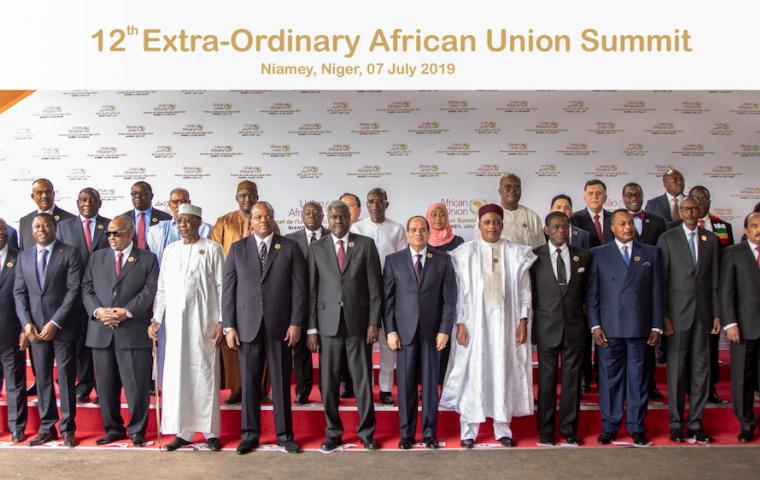By Njodzeka Danhatu
The operational phase of the African Continental Free Trade Area, dubbed AfCFTA, has been launched.
This is contained in a press release signed July 7, which Atlantic Chronicles procured.
The launch of the African cross-border free trade is the outcome of the 12th extra-ordinary summit of African Heads of state and AU government in Niger’s capital, Niamey, on Sunday, July 7, 2019.
According to the release, AfCFTA will be governed by five operational instruments: the Rules of Origin; the online negotiating forum; the monitoring and elimination of non-tariff barriers; a digital payments system and the African Trade Observatory.
Going by this release, out the 55 AU member states, 27 countries have ratified AfCFTA’s instruments while other countries have signed and are yet to ratify.
During the launching, AU Commission Chair, Moussa Faki Mahamat outlined that the speedy entry into force of AfCFTA is a source of pride for all African countries.
He equally highlighted that the free trade agreement is one of the instruments for continental integration in line with the objectives of the Abuja Treaty and the aspirations of Agenda 2063.
Hear him. “It would be a delusion to talk of trade and development without peace and security”. To Faki Mahamat, AfCFTA can only be effective, if other Africans countries open their borders.
Meanwhile, AU Chairman, Egypt’s President, Abdel Fattah El Sisi, pressed on the need for the establishment of linkages with the private sector and the business and investment communities.
According to the summit’s host, Niger’s President Mahamadou Issoufou, free trade area will tear down borders inherited from Africa’s colonial past and ensure full continental integration.
The AfCFTA agreement as per the release, was adopted and opened for signature March 21, 2018, in Kigali, and was later enforced on May 30, 2019, thirty days after receiving the twenty-second instrument of ratification, April 29, 2019, in conformity with legal provisions.
AfCFTA, with its Secretariat in Ghana, will be the largest free trade area since the formation of the World Trade Organisation, WTO, given Africa’s present population of 1.2 billion people, which is expected to grow to 2.5 billion by 2050.

